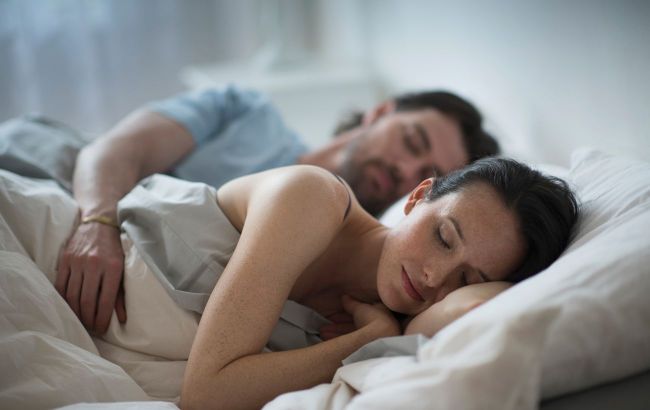How to fall asleep without sleeping pills. 7 top secrets that will make you sleep well
 How to fall asleep without sleeping pills (photo: Getty Images)
How to fall asleep without sleeping pills (photo: Getty Images)
If you don't sleep well, there are several proven ways to improve your night's rest without using sleeping pills. Ukrainian nutritionist Oleh Shvets tells exactly how to get a good night's sleep.
Wake up at the same time every day
Even if you have to wake up early on weekdays and allow yourself to sleep longer on weekends, this can throw off your natural sleep rhythm. This "social jet lag" negatively affects your ability to fall asleep at night and your energy levels during the day. Try setting your alarm for the same time every day, and in a few weeks you will feel the difference. And to help your body wake up faster, go out in the sun in the morning.
Use light cues
Light plays a crucial role in regulating the circadian rhythm, the body's internal clock. In the morning, sunlight suppresses the production of melatonin, the sleep hormone, and stimulates the production of cortisol, the wakefulness hormone. In the evening, on the contrary, darkness promotes melatonin production, preparing the body for sleep.
Our natural circadian rhythm lasts about 25 hours, so without external cues such as sunlight, our bedtime would shift every night. To help your body synchronize with the 24-hour schedule, you need to get a dose of sunlight every morning.
If the sun is not available, you can use special lamps that simulate sunlight. It is important that the lamp provide a light intensity of at least 10,000 lux.
Don't disrupt the prerequisites for sleep
In addition to the circadian rhythm and melatonin, another important system affects the quality of sleep - the accumulation of adenosine in the brain. Adenosine is a substance that makes us feel tired. During sleep, adenosine levels decrease, allowing us to wake up refreshed.
It is important to allow adenosine to build up naturally during the day, avoiding factors that can disrupt this process.
Avoid caffeine and alcohol
Caffeine blocks the effects of adenosine on the brain, so drinking it before bed can lead to insomnia. The time it takes for caffeine to be eliminated from the body depends on age and individual sensitivity but usually ranges from 3 to 7 hours. Therefore, experts recommend avoiding caffeine consumption 10 hours before bedtime.
Alcohol also has a negative impact on sleep. It can help you fall asleep faster, but it can also cause a "rebound effect" that leads to waking up during the night. In addition, alcohol can make sleep apnea worse.
Take a nap, but not for long
A short daytime nap can be beneficial, but it's important to limit it to 30 minutes. Long naps can disrupt nighttime sleep. People who suffer from insomnia should avoid daytime sleep altogether.
Exercise
Regular exercise helps to improve sleep, but it is important to avoid intense workouts 2 hours before bedtime, as they can wake up the body.
Rituals for preparing for sleep: light, temperature, calm
Preparation is one of the most important components of quality sleep. You can start as early as 1-2 hours before bedtime. You should set an alarm to remind you of this. Then you need to stop working, reading the news, watching movies: do anything that can cause stress or activation.
Start preparing by dimming the lights (turning on small lamps and turning off bright overhead lights) to help release melatonin. If you work with gadgets in the evening, use functions to reduce blue light, which suppresses melatonin production, or glasses with a blue light filter.
The next step is to reduce the temperature in the room to 20 degrees Celsius or lower. This is important because our temperature naturally drops in the evening, which is due to the circadian rhythm and is crucial for falling asleep. Another way to support this process is to take a hot shower or bath, which is pleasantly relaxing.
Earlier, experts have named the two best positions for good sleep.
This material is for informational purposes only and should not be used for medical diagnosis or self-treatment. Our goal is to provide readers with accurate information about symptoms, causes, and methods of detecting diseases. RBС-Ukraine is not responsible for any diagnoses that readers may make based on materials from the resource. We do not recommend self-treatment and advise consulting a doctor in case of any health concerns.

